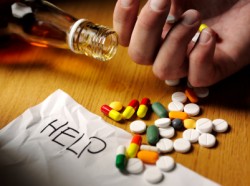Drug addiction is a dangerous disease that makes it essential to seek professional help to get well. When it comes to seeking effective treatment for drug addiction, there is no single method of care that will work for everyone. Those who are addicted to drugs are likely to have a wide range of issues that require treatment including mental illness, various types of drug addiction that must all be treated differently, varied budgets, varied lengths of time being addicted and various health concerns.
Because addicts can have so many differences, there is a need for many different types of drug addiction treatment in order to appeal to the diverse needs of all of those who require help. The right addiction treatment program for your needs will depend on various factors including:
- the severity of the addiction
- the length of time addicted
- other health problems
- mental illness
- lifestyle
- budget
- location
 Here’s a look at some of the most common types of drug addiction treatment programs that can be found throughout the country:
Here’s a look at some of the most common types of drug addiction treatment programs that can be found throughout the country:
- Residential Drug Addiction Treatment – this method of treatment focuses on extended periods of counseling and therapy that take place in a facility that is monitored around-the-clock. These programs usually last at least 30 days and some last as long as one year. Residential drug addiction treatment programs focus on removing the addict from his or her environment and surrounding him or her with treatment, counseling and professional medical care that will help to change their behaviors and promote sobriety.
- Holistic Drug Addiction Treatment – these programs focus on healing the mind, body and spirit. Many traditional medicine treatments as well as ancient remedies are used. Holistic addiction treatment may include acupuncture, massage therapy, meditation and yoga.
- Outpatient Drug Addiction Treatment – If you can’t just walk away from your life and enter a residential treatment program, outpatient addiction treatment may be right for you. These programs provide many of the same treatments that residential programs offer but they do not require substantial time and the patient lives at home while they receive treatment. Outpatient programs treat varied levels of drug addiction but are typically most effective for those who are mildly to moderately addicted. These programs are also effective for those who cannot afford residential treatment or who must remain home to care for a family or to continue working or going to school.
- Dual Diagnosis Drug Addiction Treatment – Many people who are addicted to drugs or alcohol also suffer from mental illness. These people require treatment for both the addiction and the mental illness. This is called dual diagnosis or co-occurring conditions. Dual diagnosis addiction treatment provides these patients with counseling and therapy as well as medical care for the treatment of both conditions.